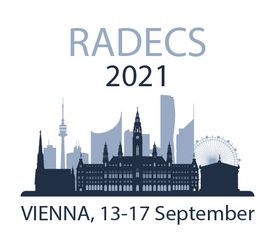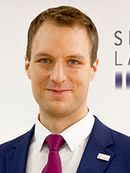Abstract
Spacecraft are exposed to a complex and harsh radiation environment that poses a great challenge to space mission design and mission success. Electronic devices suffer cumulative long-term radiation effects by charge deposition, called total ionizing dose effects. As a result, the devices may suffer from increased current and power consumption, threshold voltage shifts, increased leakage currents and general decrease or loss of functionality.
The presentation discusses the origin and effects of the space radiation environment, composing of solar particles, galactic cosmic radiation and trapped particles. Total ionizing dose will be discussed in detail, including its origin, its effects and how electronic devices can be tested according to standards before they are applied in the field.
Contents
- Space Radiation Environment
- Total Ionizing Dose Effects
- Total Ionizing Dose Testing
Short CV
Christoph Tscherne is a radiation effects engineer at the Seibersdorf Laboratories in Austria. He is a leading expert in the technical management and quality management of the accredited TEC-Laboratory at Seibersdorf with regard to European and Military radiation standards. He is project manager and vice project manager of several national and international projects. Christoph is technical co-chair for the RADECS 2021 and vice general chair and co-host of the RADHARD Symposium.
Christoph received his master’s degree in technical physics from the Vienna University of Technology. Besides his employment at Seibersdorf Laboratories, Christoph is conducting his PhD at Graz University of Technology on the development and in-orbit demonstration of a reference dosimeter payload for the CubeSat PRETTY.















